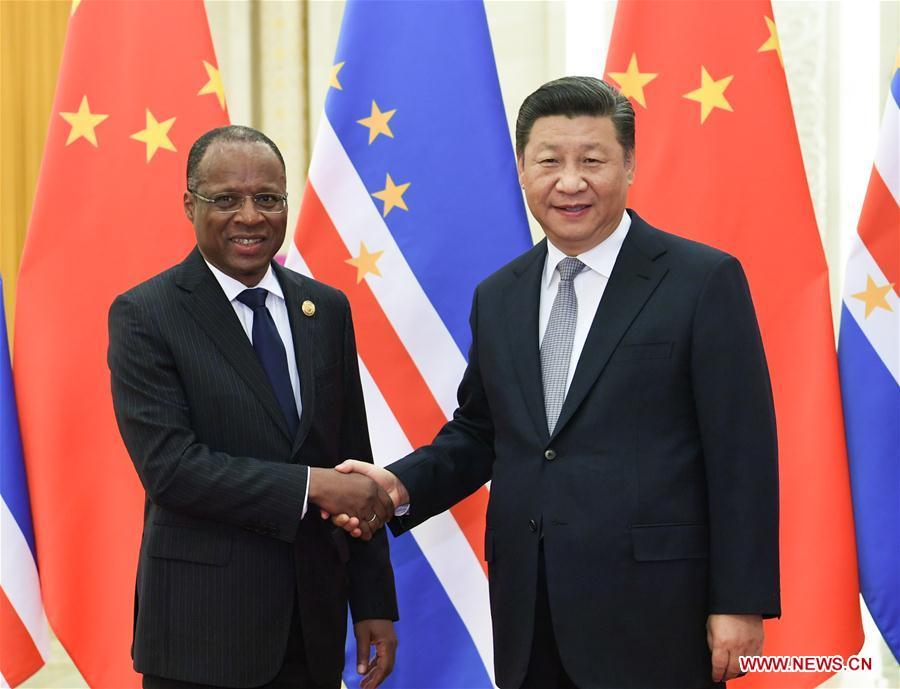
In February the U.S. Secretary of State, Antony Blinken, made it a priority to phone Rui Figueiredo, the Foreign Affairs and Defense Minister of Cape Verde. They spoke about commerce and “security.” [1]
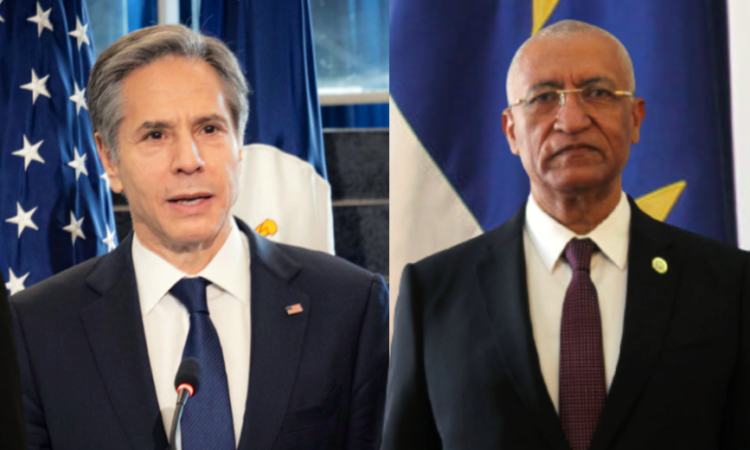
Why is the tiny African nation of Cape Verde (population 550,000) a U.S. priority? It is because the U.S. is behind China in the latest “scramble for Africa.”
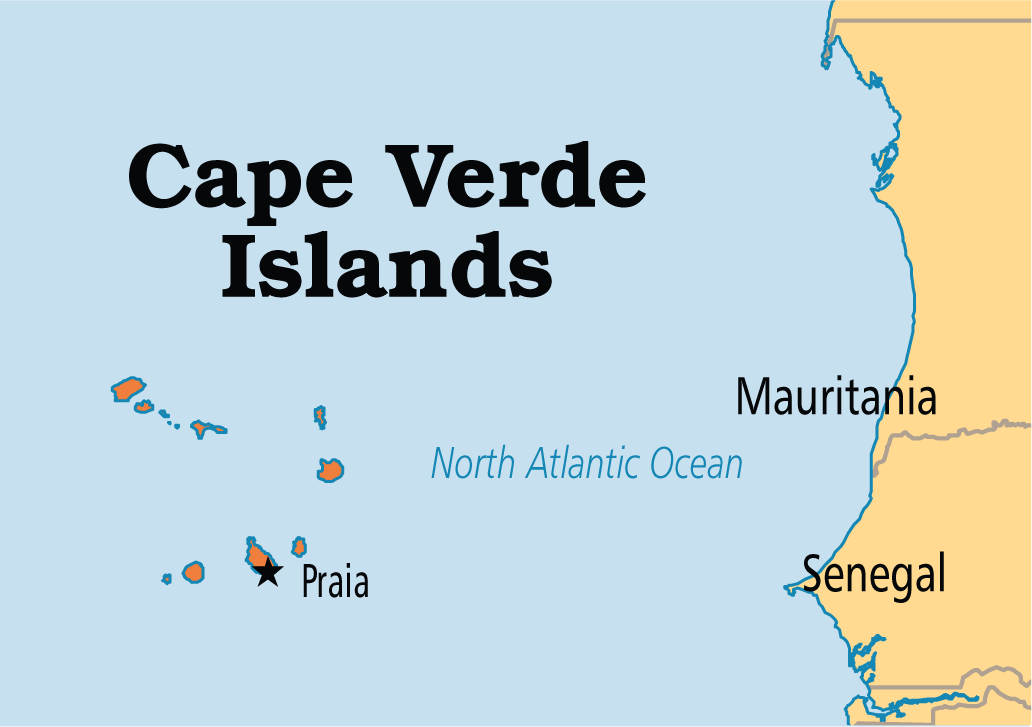
To rectify its position, vis-à-vis China, in Africa, U.S. President Joe Biden pledged to put values at the heart of his administration’s China policy. Since entering office, he has called on the world’s democracies to “gird for a new era of strategic competition with China.”[2]
To cut through U.S. rhetoric and reveal the covert value system of the U.S. in Africa, the word “security” is instructive.
Antony Blinken’s concern for the “security” of Cape Verde automatically activates a destructive infrastructure that’s summed up in the Americanisms: “war on drugs,” “war on terror” and the “United States African Command” (AFRICOM). War and its latest accoutrements actually define U.S. values in Africa.
A Pentagon map, for example, shows a network of 29 bases stretching from one side of Africa to the other.

The U.S. at the same time has provided billions of dollars in security assistance to local partners, conducted persistent counterterrorism operations that include commando raids, combat by U.S. Special Operations forces in at least 13 African countries between 2013 and 2017, and a record number of U.S. airstrikes in Somalia (just over one attack per week in 2019).
The Chinese by contrast have focused on the development of large infrastructural projects across the continent, which have been financed in part as a form of payback for Chinese exploitation of Africa’s mineral wealth.
Cape Verde has few mineral resources, and China’s investments there are mainly designed to spread goodwill and convey a positive image on the African continent.[3]
The centerpiece of China’s efforts in Cape Verde is the opening of a university in Praia—the capital city of the archipelago.

China’s government has just funded the building of a campus that includes 34 laboratories, five auditoriums, a convention center with capacity for 654 people, and dormitories with 382 beds, in addition to classrooms, computers and reading rooms, a library, cafeterias and sport facilities. It was built by China’s LongXin Construction Group.[4]
In Cape Verde, China has also funded the expansion of the presidential and government palaces and a national stadium, which has been hailed by then-ambassador Su Jian as “the greatest construction after independence.”
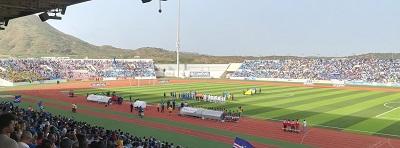
The juxtaposition between China’s spectacular contributions to Cape Verdean society and U.S. militarism captures two contemporary approaches to Africa. In simple terms, one involves the barrel of a gun and the other involves a wheelbarrow.
One is marked by violence and racism and the other by a solidarity with roots in the Third World movement. One is imperialist and the other, to a certain degree, liberationist.
Kickstarting the Slave Trade
The tragic humiliation of Africa began in Cape Verde. In 1462, Portugal began the European colonization of tropical Africa on the island of Santiago—in a settlement then called Ribeira Grande.[5]
In the process, the Portuguese kick-started the Atlantic slave trade that eventually spawned the USA. Or, as Walter Rodney put it in his seminal volume entitled How Europe Underdeveloped Africa, Africa developed Europe at the same rate as Europe underdeveloped Africa.
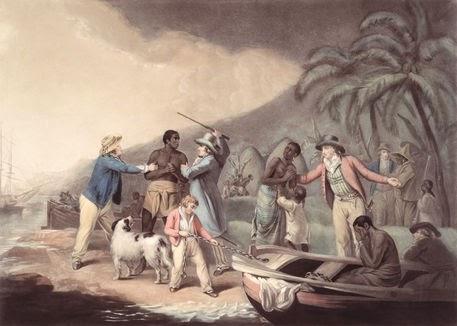
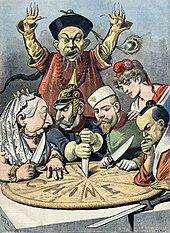
Although not entirely analogous, China’s century of humiliation echoed what happened in Africa. The British colonization of a tropical island (Hong Kong) triggered fragmentation and the obnoxious opium trade—the trade which gave rise to powerful U.S. dynasties and U.S. institutions (Forbes, the Astors, the Delanos, U.S. Steel, Ford, General Motors, and the universities of Harvard, Yale and Princeton).[6]
The humiliation of Africa and China at the hands of Europe and the U.S. cannot be brushed aside. When considering China’s current investment in Africa and Africa’s openness to this investment, it is imperative to include the long African and Chinese struggles against Western imperialism.
The founders of modern China and modern Cape Verde—Mao Zedong and Amilcar Cabral—were two of the greatest anti-imperialists of the 20th century. And both nations still tap into the Third-World perspective to develop their people.
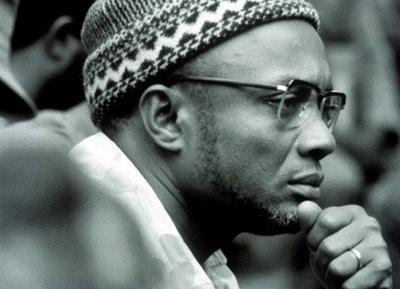
For example, China’s Belt and Road Initiative—of which Cape Verde is a strategic part—is boldly uniting the economies of Asia, Africa and Latin America. It is the materialization of the South-South alternative which first emerged in the 1955 Bandung Conference in Indonesia.
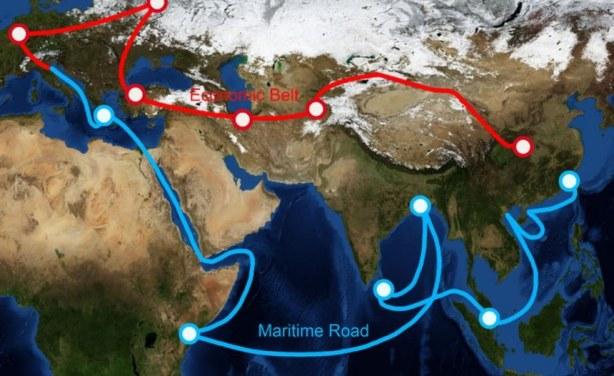
The 20th century struggle against Western imperialism was even more global than imperialism itself. To bring down the Portuguese empire, for instance, required not just pan-Africanism but universalism (the equality of all races and all nations). Amilcar Cabral identified this in his speeches and writing:
“One should not forget that the African revolution is in the service of the peace and progress of humanity as a whole. If the African peoples succeed in taking into their hands, exploit and develop rationally all the material and human resources of their countries, it will be a decisive contribution to world peace, to the total disappearance of imperialism …”
“One should not forget that whatever the particularities of the African case and the possible originality of African societies, the laws of their development are the same as those of all the other human societies.”[7]
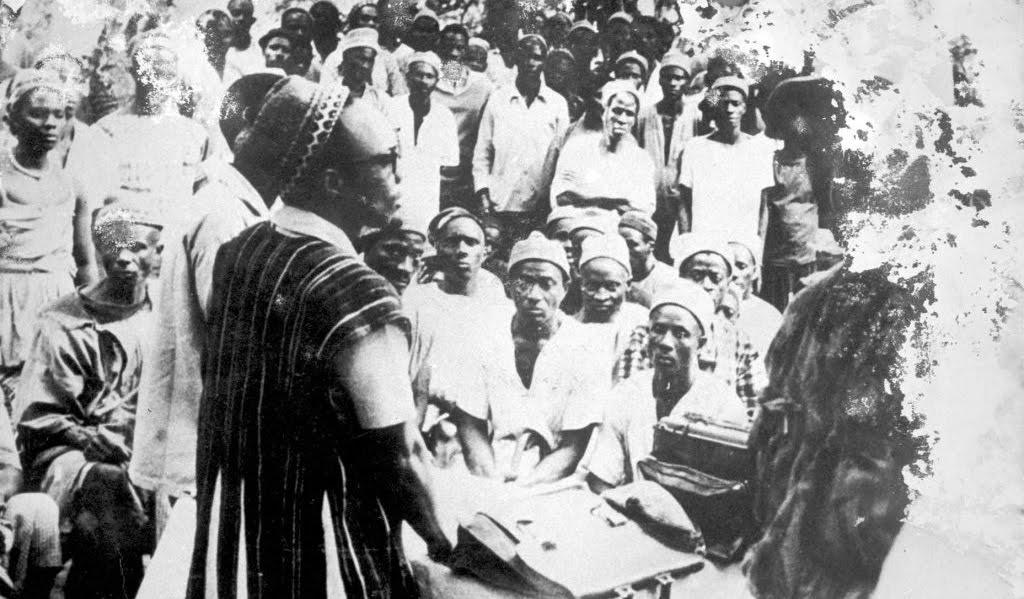
These were not abstract thoughts. Cabral, in the 1960s, explicitly connected the struggle for freedom in Cape Verde and Guinea-Bissau with universalistic societies throughout the world.
Cabral and other leaders of PAIGC [African Party for the Independence of Guinea and Cape Verde] became regular guests at the Chinese embassy in Conakry [Guinea]. In 1960, the PAIGC received an invitation from the Chinese Committee for Afro-Asian Solidarity to visit China. A delegation from the People’s Movement for the Liberation of Angola (MPLA) was invited as well. During this visit, China agreed to use their military academies to train combatants from both the PAIGC and the MPLA.
As a result of Cabral’s leadership and diplomacy, China would emerge as one of Guinea-Bissau’s [and Cape Verde’s] first supporters in the early stage of its struggle for independence. China provided the PAIGC with a great diversity of support, from weaponry to assistance broadcasting radio messages denouncing the regular, horrific crimes of the Portuguese military in Guinea-Bissau. With support from China on one hand, and Portuguese brutality on the other, the anti-colonial struggle intensified between 1963 and 1974.[8]
After the collapse of Portuguese imperialism in 1974, and the independence of Cape Verde in 1975, the relationships Cape Verde made during its struggle against Western racism continued. None was more important or more lasting than that with China.
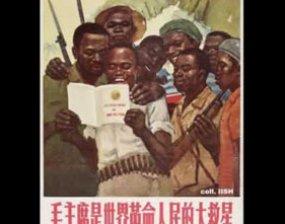
Since its own birth in 1949, the People’s Republic of China has been supporting the construction of an Africa free from imperialism. This revolutionary narrative—in one way or the other—forms the backbone of China’s modern engagement with the continent.
Zhou Enlai, the first Premier of the People’s Republic of China, was a key signatory to the ten Bandung principles in 1955—which outlined Afro-Asian solidarity. These guiding points were based on the Charter of the United Nations and its idea of peaceful cooperation. But explicit, in the principles, was the belief “in the equality of all races and … the equality of all nations large and small.”[9]
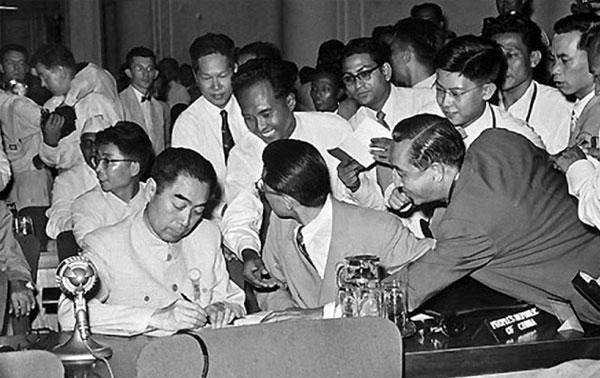
The U.S. response to this egalitarian initiative within the Third World was an act of covert war: The CIA planted a bomb on the airplane it believed was transporting Zhou Enlai to Bandung. On April 11, 1955, 16 people died in the mid-air explosion between Hong Kong and Indonesia. The Chinese Premier, however, was on a different aircraft.[10]
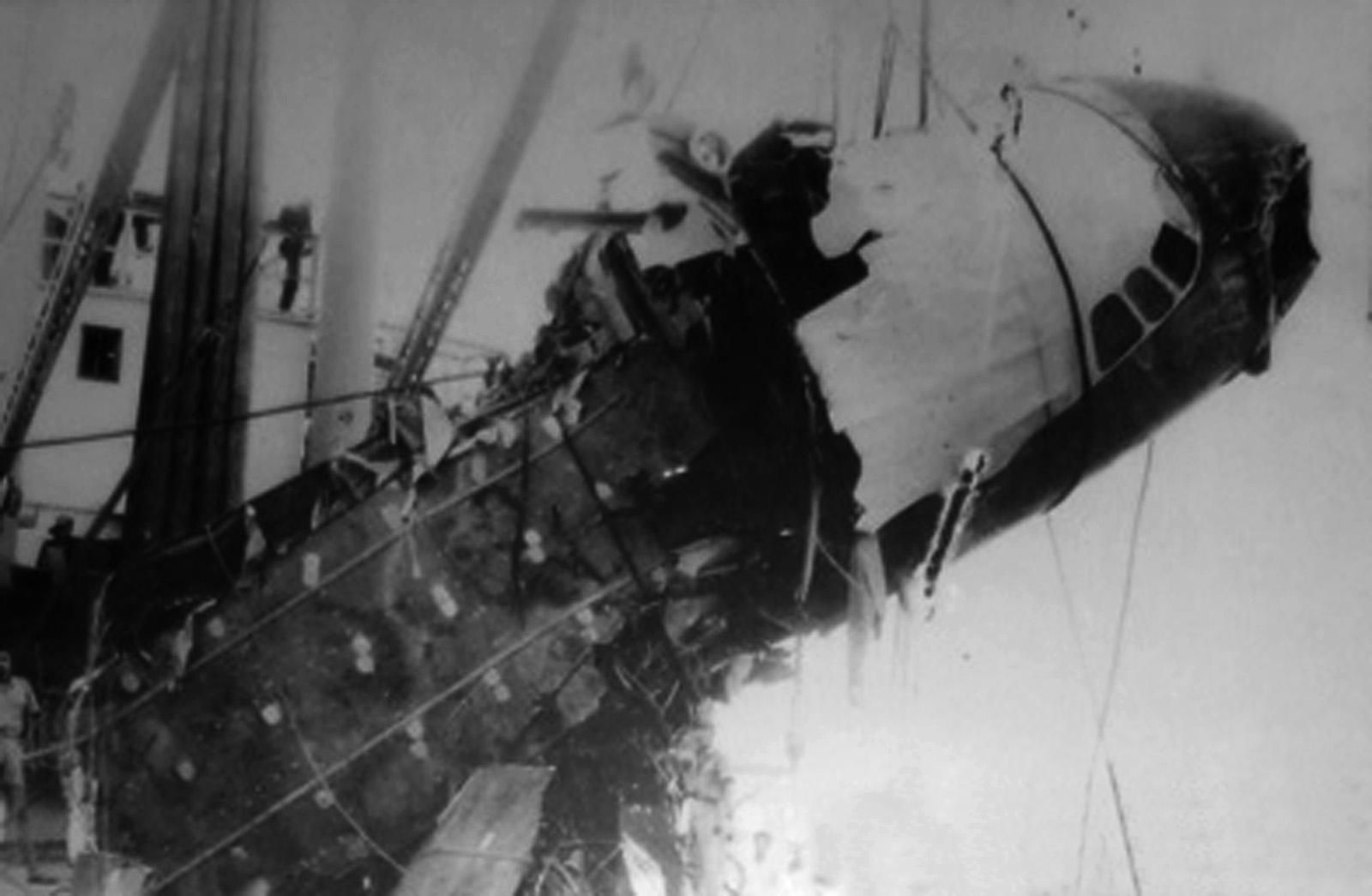
In the decades following the Bandung Conference, China outlined its position regarding Africa more clearly. Speaking in Mogadishu, Somalia, in 1964, Zhou Enlai said:
“Although the Chinese people and the African peoples speak different languages and are thousands of miles apart, we have similarly experienced aggression and oppression by imperialism and colonialism, and we face the common fighting tasks of opposing imperialism and building up our respective countries. We understand each other best and we share each other’s feelings.” [11]
And, significantly, this message of solidarity and common struggle against Western racism continued after the death of Mao in 1976.
In 1996 the Chinese leader, Jiang Zemin, speaking to the Organization of African Unity (OAU), stated that the Chinese and African people “never have … had any conflicts between them.” Instead, “both [have] suffered enormously under colonialists and foreign aggression.” And as a result, they are “joining hands in building the solid foundation of Sino-African friendship and cooperation …” The developmental goal was to eliminate “the unjust and inequitable economic order left over from the past.” [12]
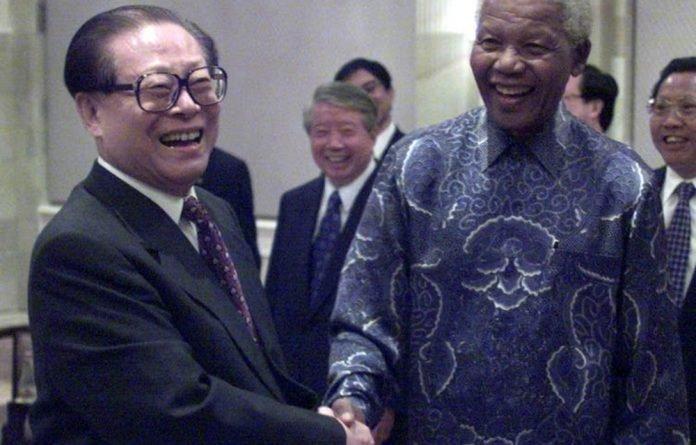
This decades-long anti-imperialist approach to Africa was then institutionalized in 2000 in the Forum on China-Africa Cooperation (FOCAC). And it was clarified in the words of China’s leaders when they addressed the first Forum in Beijing. Premier Zhu Rongji spoke of the
“road towards friendship and cooperation [that] is covered with the footprints of Chinese and African leaders of several generations….”
He spoke of this “joint struggle waged by the Chinese and African peoples shoulder by shoulder … [to create] a fair and rational new international political and economic order.” [13]
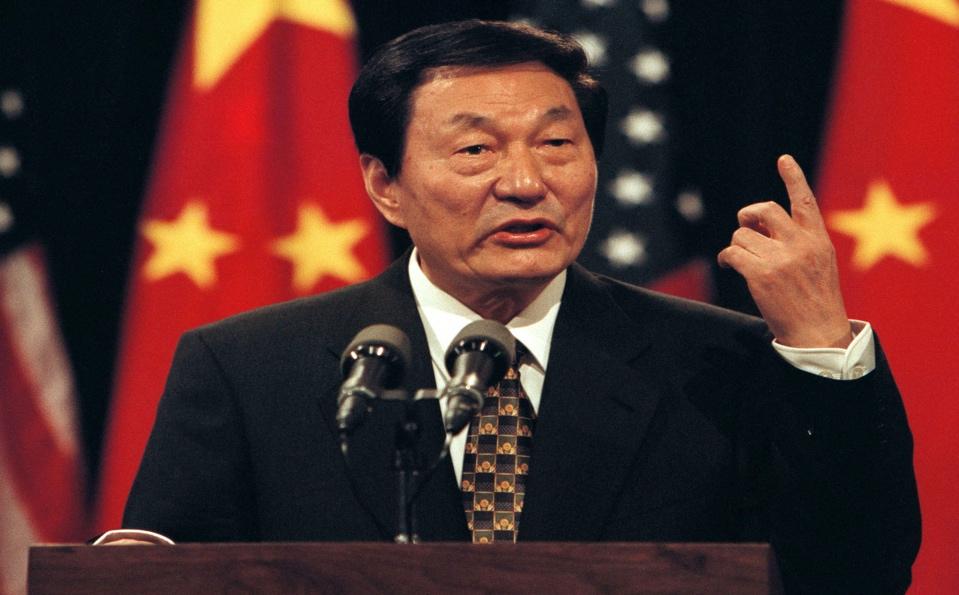
And President Jiang Zemin could not have been more explicit:
“[H]aving smashed the shackles of the colonial rule that lasted for several centuries, the African people won their national liberation and independence … and the Chinese people did away with imperialism, feudalism and bureaucratic capitalism …
“We have come to the conclusion after a review of the history of the past one hundred years that the Chinese people and the African people both treasure independence … and … are both important forces for world peace and common development.”[14]
This anti-colonial value system underlies China’s investment in Africa today. And it helps to explain not only the new Chinese-built university in Cape Verde but also the Chinese-built Poilão dam in Cape Verde—as well as the Chinese-built national stadium in Cape Verde. It explains why China is building a special economic zone in Cape Verde—on the island of São Vicente. And it explains why the U.S. government is today so anxious about Africa.[15]
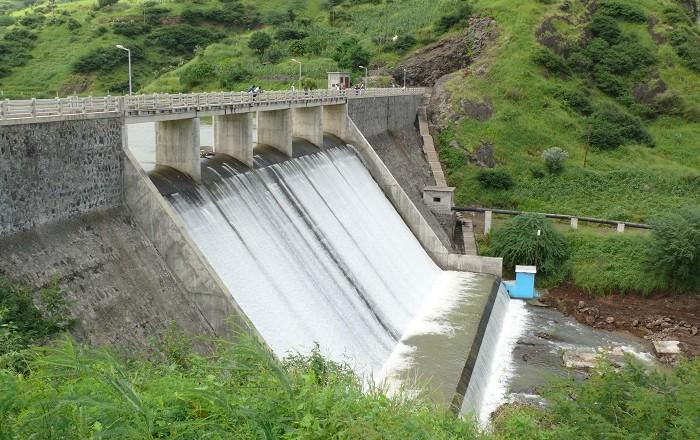
However, the fact is that China’s deep anti-imperialist narrative regarding Africa is only credible if there is an opposing deep imperialist narrative. It is only believable if Chinese construction in Africa is countered by imperialist destruction. It only holds water if the imperialist leopard—in Africa—has not changed its spots.
The evidence suggests that it has not. Portugal may have pulled back from Cape Verde and its other colonies, but the U.S. has rushed in to fill its imperialist boots.
In 1949, the U.S. aligned itself with Europe’s empires—U.S. President Joe Biden now calls these “the world’s democracies”—the British, French, Dutch, Belgian and Portuguese. At the time, Africa was still in the grip of these European racists. And one of the objectives of this new alignment—NATO (North Atlantic Treaty Organization)—was to tighten that grip on Africa.
Cape Verde’s hero—Amilcar Cabral—was completely aware of the post-World War II restructuring of imperialism. In 1968, he noted:
“[T]he Portuguese government is able to count more than ever on the effective aid of the NATO allies …
“ It is our duty to stress the international character of the Portuguese colonial war against Africa and the important and even decisive role played by the USA … If the Portuguese government is still holding out on the three fronts of the war which it is fighting in Africa, it is because it can count on the overt or covert support of the USA, freely use NATO weapons [and] buy B26 aircraft for the genocide of our people …” [16]
Since the assassination of Cabral in 1973, the U.S. and its NATO proxies may have lost their formal grip on Africa; but they continue to strangle Africa militarily. The most blatant example of this is NATO’s destruction of Libya in 2011.
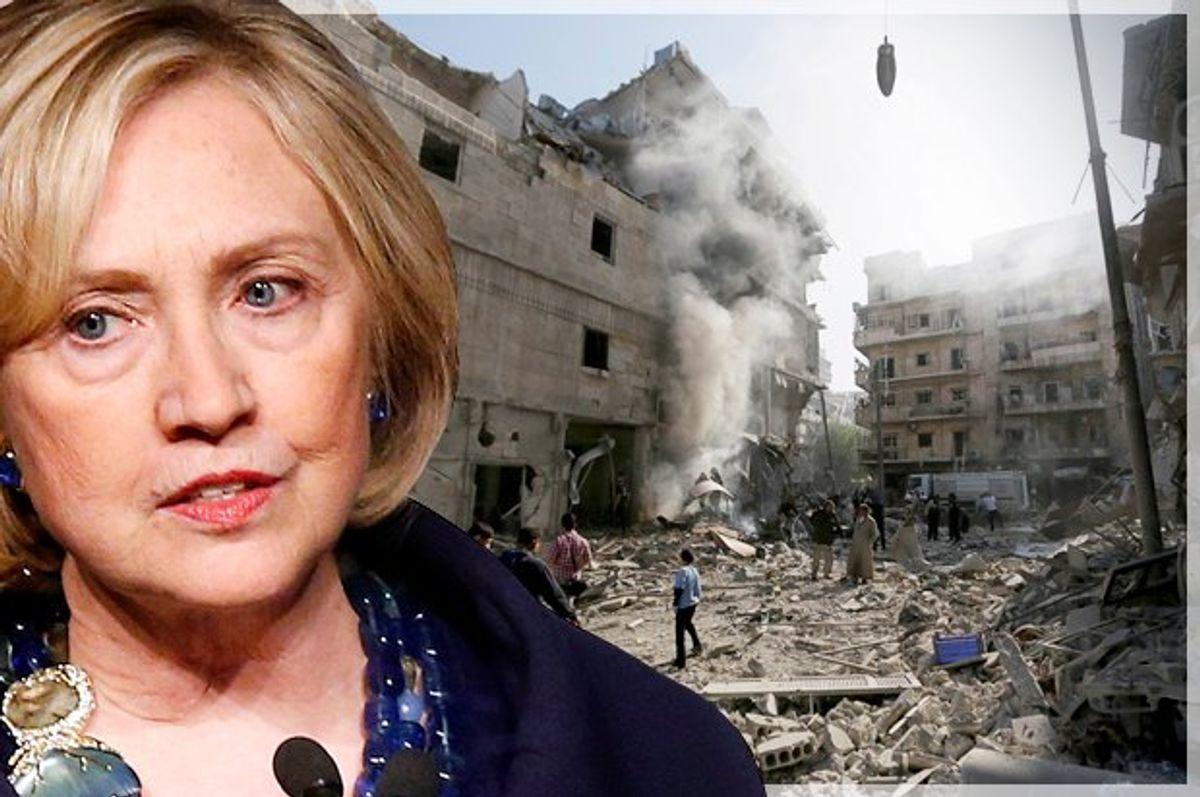
Before the U.S. and its “democratic” partners bombed Libya, that country “had the highest Human Development Index, the lowest infant mortality and the highest life expectancy in all of Africa.”[17] There was also—at the time of the bombardment—75 Chinese companies (36,000 employees) working inside Libya—constructing housing, railways, telecommunications and hydroelectric facilities. [18]
The end result of NATO’s unprovoked act of war against Libya (and Africa) was a catastrophic socio-economic reversal in the region, summarized in headlines such as “Slavery in Libya: Life inside a container”[19] and “Slavery and Human Trafficking in Libya.”[20]
When asked about the murder of the man (Muammar Gaddafi) who led Libya to the top of the African human development index, the then U.S. Secretary of State, Hillary Clinton, succinctly expressed the barbaric values underpinning the U.S. approach to Africa: “We came, we saw, he died.” And then she laughed. [21]
War is the language of imperialism and, in Africa today, the U.S. speaks it fluently. Under the cover of “counterterrorism” and “counterinsurgency,” the U.S. and its NATO allies are inserting their forces throughout the continent.
On the one hand, there is the ongoing French Operation Barkhane (2014) that has spread thousands of NATO soldiers across West Africa.
And on the other hand, there is the United States African Command (AFRICOM—founded in 2007). The mission statement of AFRICOM is clear: It exists to “to advance U.S. national interests … and … support U.S. Government foreign policy … through military-to-military activities.” [22]
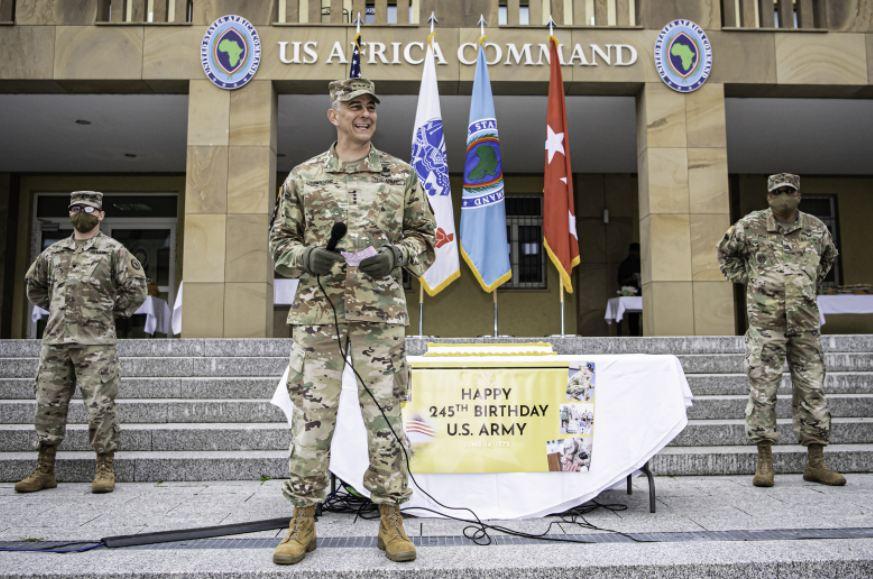
In 2019, just 12 years after its creation, AFRICOM had a “network” of 29 military bases spread across 15 African countries. [23]
Indeed, for U.S. leaders Africa is now “a petri dish and a proving ground for the development of a limited power-projection paradigm of drones, Special Operations forces, military advisers, local proxies, and clandestine intelligence missions.” [24]
This is alarming for Africa because it recalls the covert role of the U.S. military in post-World War Two Latin America. U.S. “military-to-military activities” in that part of the Third World resulted in neo-fascist dictatorships and “lost decades of development.”
Only a few decades after losing Africa, Western imperialism is back in Africa with a bang. And “Great Power Competition” is its excuse.
NATO’s purpose is to defend the economic order into which it was born. In 1949 the global economy revolved around the North Atlantic and its Bretton Woods system. To guarantee the flow of global wealth toward Western Europe and North America, NATO teamed up with institutions like the World Bank and International Monetary Fund (IMF).
However, it is this precise order—an order which props up the West at the expense of the Third World—which was challenged by the 1949 Chinese revolution and the decolonization of Africa in the 1960s and 1970s.
The exponential growth of the People’s Republic of China and the current export of that growth to Africa amount now to being a supercharged extension of that challenge.
The struggles for political freedom in Africa, therefore, have transformed into struggles for economic freedom—indeed for economic survival.
After NATO’s wars against African liberation there followed “NATO’s neoliberal attack” on Africa. NATO’s neocolonial debt traps and structural adjustment policies have plagued Africa since the 1980s. In fact, U.S. free-market fundamentalism sabotaged the freedom which Africa fought for.
The values underpinning this U.S. faith in the market—a propos Africa—were revealed in the infamous Summers memo of 1991. At the time Lawrence Summers was Chief Economist and Vice President at the World Bank. In his opinion,
the “under-populated countries in Africa are vastly under-polluted; their air quality is probably vastly inefficiently low [sic] compared to Los Angeles.” [25]
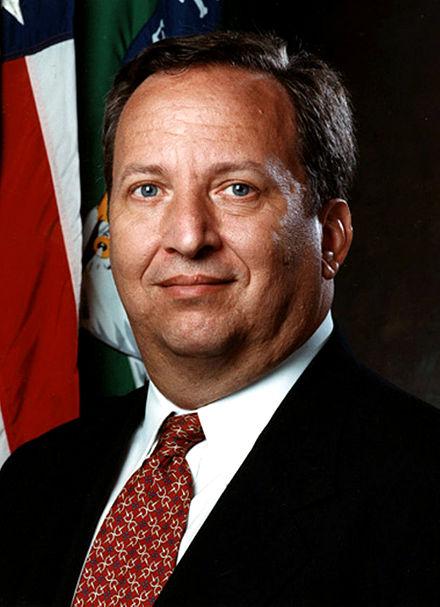
In other words, this top U.S. economic strategist was advocating “the dumping of toxic waste in Africa.”[26]
For many observers, though, it is even worse than that: The dictates of the U.S.-based World Bank and IMF created an “apocalyptic situation” in post-colonial Africa.
“The most basic index of well-being is life itself—how many years a human can expect to live. Yet while other regions’ life expectancy is steadily improving … Africa’s is now going backwards:
“Life expectancy declined in no fewer than 31 African countries between 1995 and 1998.”
The imperialist logic of neoliberalism in Africa is clear: “[It] is actually planned and reminiscent of the paleo-liberal strategy of the British state in the famines in Ireland and India and the Clearances of the Scottish Highlands in the 19th century.”
The objective conclusion can only be that U.S.-trained economists—the disciples of Milton Friedman inside the IMF and World Bank—since the liberation of Africa, “[have] knowingly … incorporated the death of millions as an element in their strategy … Theirs is clearly a strategy of ‘terror from above.’”’[27]
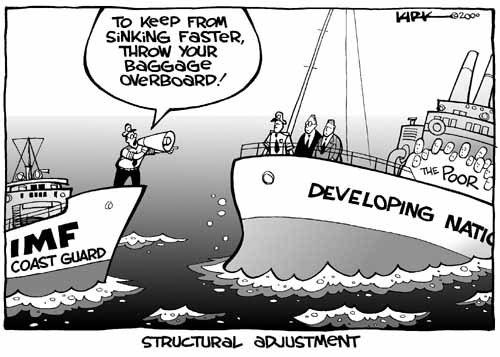
As the 21st century began, China entered into this “apocalyptic” U.S.-made situation. And as it did in the 1960s, it changed the orientation of Africa for the better. In contrast to Western “terror from above” (dictates and drones), China has been building up from below.
Since 2011, China has been the biggest player in Africa’s infrastructure boom, claiming a 40% share that continues to rise. Meanwhile, the shares of other players are falling precipitously: Europe declined from 44% to 34%, while the presence of U.S. contractors fell from 24% to just 6.7%. [28]
Today’s partnership between Cape Verde and China is the cutting edge of this “construction boom.” In the 1960s these two nations combined to defeat the politics of imperialism. Now they are combining to battle the economics of imperialism: “the unjust and inequitable economic order left over from the past.”
If there is “great power competition” in Africa today, the U.S. has already lost the moral high ground since it remains committed to the infrastructure of imperialism—a system which creates nothing but destabilization. For the U.S., therefore, Africa is first and foremost a “security issue”—a “heart of darkness.”
Africa, however, is not an ahistorical enigma or a prize to be won in a competition. It is a proud continent which broke free from imperialism around the same time as China broke free from imperialism. And at the 1955 Bandung Conference both Africa and China invested in freedom from empire and peaceful cooperation. No evidence to date suggests that China has disavowed the spirit of Bandung.
In stark contrast, the U.S.—around 1950—chose to partner with Western Europe (NATO) rather than with the world. It chose empire. It chose to violently oppose “Bandung.” It chose war, racism and the neoliberal apocalypse. If Africa must now choose between China and the U.S., the choice is obvious.

-
Ken Moriyasu, Ryo Nakamura and Kaori Yoshida, “Great power competition: US boosts Africa diplomacy on land and sea,” February 25, 2021, www.asia.nikkei.com ↑
-
Hal Brands and Zack Cooper, “U.S.-Chinese Rivalry Is a Battle Over Values,” March 16, 2021, www.foreignaffairs.com ↑
-
Pedro Ramos, “Cape Verde: A Blueprint for China’s Positive Role in Africa,” The Diplomat, October 28, 2016. ↑
-
Andreia Nogueira, “New multi-million dollar island campus a ‘significant’ expansion,” October 15, 2020, www.universityworldnews.com ↑
-
Ribeira Grande is now called Cidade Velha. ↑
-
Jarele E. Soyinka, “Opulence and Opium: The Legacy of Harvard’s Drug Syndicate,” March 30, 2017, www.thecrimson.com; Martha Bebinger, “How Profits From Opium Shaped 19th-Century Boston,” July 31, 2017, www.wbur.org ↑
-
Amilcar Cabral, speech before the Third Conference of the African Peoples in Cairo, March 1961, Yves Benot, and Nzongola-Ntalaja. “Amilcar Cabral and the International Working Class Movement.” Latin American Perspectives, vol. 11, no. 2, 1984, pp. 81-96. JSTOR, www.jstor.org/stable/2633523. Accessed March 15, 2021. ↑
-
Curry Malott, Amilcar Cabral: Liberator, theorist and educator, January 20, 2021, www.liberationschool.org ↑
-
The Ten Principles of Bandung, www.china daily.com.cn, updated April 23, 2005. ↑
-
N.D. Jayaprakash, “Why the CIA Tried to Kill Chou En Lai,” July 9, 2005, www.counterpunch.org ↑
-
Zhou Enlai, formal address to a mass rally in Mogadishu, February 3, 1964, Strauss, Julia C. “The Past in the Present: Historical and Rhetorical Lineages in China’s Relations with Africa.” The China Quarterly, no. 199, 2009, pp. 777–795. JSTOR, www.jstor.org/stable/27756501. Accessed March 15, 2021. ↑
-
Jiang Zemin, Towards a new historical milestone in Sino-African friendship, 1996, Strauss, Julia C. “The Past in the Present: Historical and Rhetorical Lineages in China’s Relations with Africa.” The China Quarterly, no. 199, 2009, pp. 777–795. JSTOR, www.jstor.org/stable/27756501. Accessed Mar 15, 2021. ↑
-
Zhu Rongji, “Strengthen Solidarity, Enhance Cooperation and Pursue Common Development,” October 12, 2000, FOCAC Beijing Summit, www.china.org.cn ↑
-
Jiang Zemin, “China and Africa-Usher in the New Century Together,” FOCAC Beijing Summit 2000, www.china.org.cn ↑
-
Pedro Ramos, “Cape Verde: A Blueprint For China’s Positive Role in Africa,” October 28, 2016, www.thediplomat.com; Christopher Marc “Lilyblad, Cape Verde is Emerging as a Global Pivot Point,” October 20, 2020, www.foreignpolicy.com; Roncevert Ganan Almond, “Cabo Verde’s Gamble: Chinese Island-Building in the Atlantic,” April 25, 2017, www.thediplomat.com ↑
-
Amilcar Cabral, The Development of the Struggle, Declaration made to the OSPAAAL General Secretariat December 1968, www.marxists.org ↑
-
Garikai Chengu, “Libya: From Africa’s Wealthiest Democracy Under Gaddafi to Terrorist Haven After US Intervention,” October 20, 2015, www.counterpunch.org ↑
-
ANSAmed, China in Libya – investments and neutrality, www.ansamed.info; Tania Branigan, “China looks to protect its assets in a post-Gaddafi Libya,” August 23, 2011, www.theguardian.com ↑
-
Fatma Naib, “Slavery in Libya: Life Inside a Container,” January 26, 2018, www.aljazeera.com ↑
-
Andrea Duleux, “Slavery and Human Trafficking in Libya,” February 14, 2020, www.borgenmagazine.com ↑
-
Corbett Daly, “Clinton on Qaddafi: ‘We came, we saw, he died,’” October 20, 2011, www.cbsnews.com ↑
-
What We Do, AFRICOM Mission Statement, www.africom.mil ↑
-
Nick Turse, “Pentagon’s Own Map of U.S. Bases in Africa Contradicts Its Claim of ‘Light’ Footprint,” February 27, 2020, www.theintercept.com ↑
-
Danny Sjursen, “The future of war, American-style,” February 3, 2021, www.salon.com ↑
-
Basil Enwegbara, “Toxic Colonialism, Lawrence Summers And Let Africans Eat Pollution,” April 6, 2001, www.the tech.com ↑
-
Ibid. ↑
-
George Caffentzis, “Neoliberalism in Africa, Apocalyptic Failures and Business as Usual Practices,” Fall 2002, ALTERNATIVES Turkish Journal of International Relations, www.dergipark.org.tr ↑
-
Wade Shepard, “What China Is Really Up To In Africa,” October 3, 2019, www.forbes.com ↑
CovertAction Magazine is made possible by subscriptions, orders and donations from readers like you.
Blow the Whistle on U.S. Imperialism
Click the whistle and donate
When you donate to CovertAction Magazine, you are supporting investigative journalism. Your contributions go directly to supporting the development, production, editing, and dissemination of the Magazine.
CovertAction Magazine does not receive corporate or government sponsorship. Yet, we hold a steadfast commitment to providing compensation for writers, editorial and technical support. Your support helps facilitate this compensation as well as increase the caliber of this work.
Please make a donation by clicking on the donate logo above and enter the amount and your credit or debit card information.
CovertAction Institute, Inc. (CAI) is a 501(c)(3) non-profit organization and your gift is tax-deductible for federal income purposes. CAI’s tax-exempt ID number is 87-2461683.
We sincerely thank you for your support.
Disclaimer: The contents of this article are the sole responsibility of the author(s). CovertAction Institute, Inc. (CAI), including its Board of Directors (BD), Editorial Board (EB), Advisory Board (AB), staff, volunteers and its projects (including CovertAction Magazine) are not responsible for any inaccurate or incorrect statement in this article. This article also does not necessarily represent the views the BD, the EB, the AB, staff, volunteers, or any members of its projects.
Differing viewpoints: CAM publishes articles with differing viewpoints in an effort to nurture vibrant debate and thoughtful critical analysis. Feel free to comment on the articles in the comment section and/or send your letters to the Editors, which we will publish in the Letters column.
Copyrighted Material: This web site may contain copyrighted material the use of which has not always been specifically authorized by the copyright owner. As a not-for-profit charitable organization incorporated in the State of New York, we are making such material available in an effort to advance the understanding of humanity’s problems and hopefully to help find solutions for those problems. We believe this constitutes a ‘fair use’ of any such copyrighted material as provided for in section 107 of the US Copyright Law. You can read more about ‘fair use’ and US Copyright Law at the Legal Information Institute of Cornell Law School.
Republishing: CovertAction Magazine (CAM) grants permission to cross-post CAM articles on not-for-profit community internet sites as long as the source is acknowledged together with a hyperlink to the original CovertAction Magazine article. Also, kindly let us know at info@CovertActionMagazine.com. For publication of CAM articles in print or other forms including commercial internet sites, contact: info@CovertActionMagazine.com.
By using this site, you agree to these terms above.
About the Author
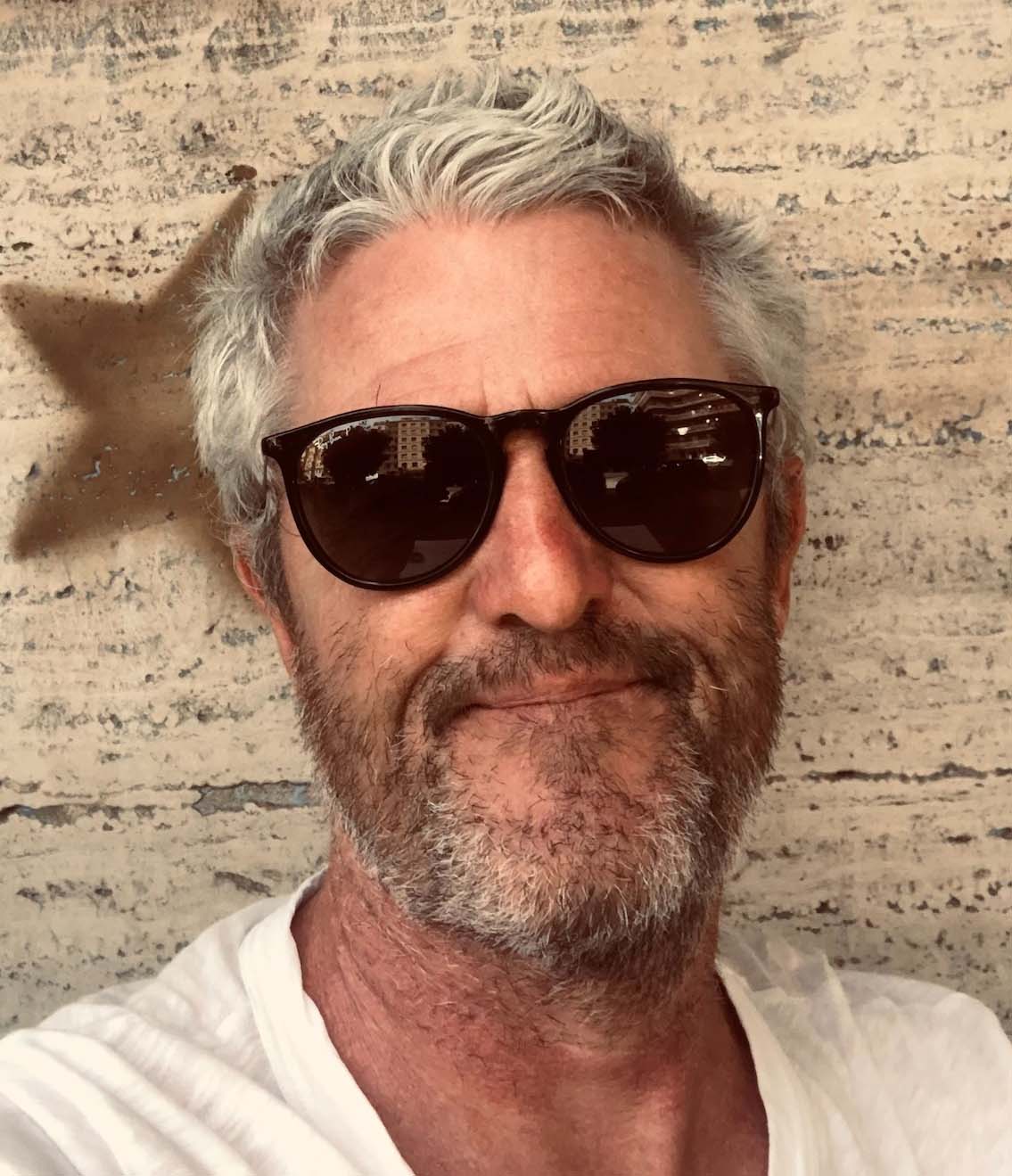
Aidan O’Brien is a hospital worker in Dublin, Ireland.
Aidan can be reached at: ado1968@hotmail.com.


Besttt Writing
Good blog for to tips thanks a lot
Can’t go further than
“The Chinese by contrast have focused on the development of large infrastructural projects across the continent, which have been <<>>.”
That might be true (and I admit my ignorance), but such statements need support.
Oh, the part I’m talking about is truncated:
“…financed in part as a form of payback for Chinese exploitation of Africa’s mineral wealth”
[…] In February the U.S. Secretary of State, Antony Blinken, made it a priority to phone Rui Figueiredo, the Foreign Affairs and Defense Minister of Cape Verde. They spoke about commerce and “security.” [1] […]
[…] Research, April 26, 2021CovertAction Magazine 23 April […]
[…] Read the Whole Article […]
“The tragic humiliation of Africa began in Cape Verde. In 1462, Portugal began the European colonization of tropical Africa ”
What???
How does the writer simply ignore the earlier Arab colonization and humiliation of Africa? The Arab invasion of Sub-Saharan Africa began in the 800s, 600 years before Europeans were anywhere near that region. Bernard Lewis and other historians estimate the number of slaves taken by the various Arab empires at 80 million.
This is a complete distortion of history that mars an otherwise sensible piece.
A similar issue can be raised with the ‘British’ occupation of Hong Kong and the opium wars. The Sassoons, Khadoories, Safras and other families who controlled the opium trade were not ‘British’.
[…] Read the Whole Article […]
Since you mentioned Bretton-Woods, I was surprised that Libya’s desire to create a gold-backed Dinar was not mentioned (https://medium.com/@evantaxi/6-years-ago-today-the-us-helped-murder-gaddafi-to-stop-the-creation-of-gold-backed-currency-275c2c57509c). This was first originally revealed in WikiLeaks.
I realize that you can’t mention everything in the interests of length and space, but I wondered if this part of history had crossed your mind.